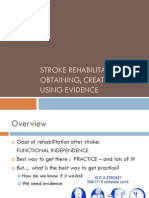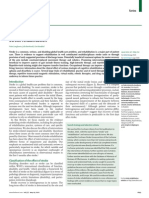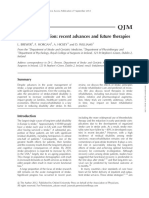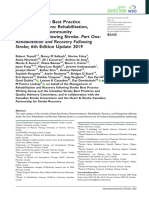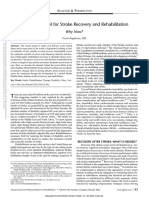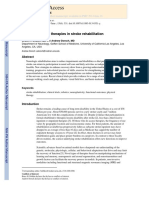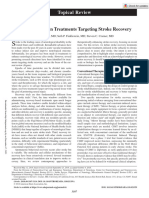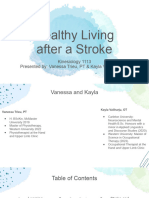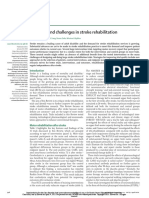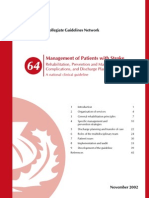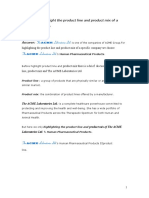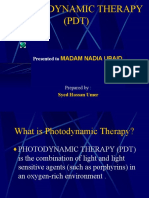0% found this document useful (0 votes)
8 views13 pagesStroke Recovery Program
The document outlines the program for a digital conference held from January 23-25, 2023, focusing on stroke rehabilitation and recovery. It includes opening remarks, concurrent sessions, guided poster tours, and plenary sessions featuring various speakers discussing advancements and challenges in stroke care. The program is structured with specific time slots for each session in Eastern Standard Time, Central European Time, and Australian Eastern Time.
Uploaded by
LideuzCopyright
© © All Rights Reserved
We take content rights seriously. If you suspect this is your content, claim it here.
Available Formats
Download as PDF, TXT or read online on Scribd
0% found this document useful (0 votes)
8 views13 pagesStroke Recovery Program
The document outlines the program for a digital conference held from January 23-25, 2023, focusing on stroke rehabilitation and recovery. It includes opening remarks, concurrent sessions, guided poster tours, and plenary sessions featuring various speakers discussing advancements and challenges in stroke care. The program is structured with specific time slots for each session in Eastern Standard Time, Central European Time, and Australian Eastern Time.
Uploaded by
LideuzCopyright
© © All Rights Reserved
We take content rights seriously. If you suspect this is your content, claim it here.
Available Formats
Download as PDF, TXT or read online on Scribd
/ 13

